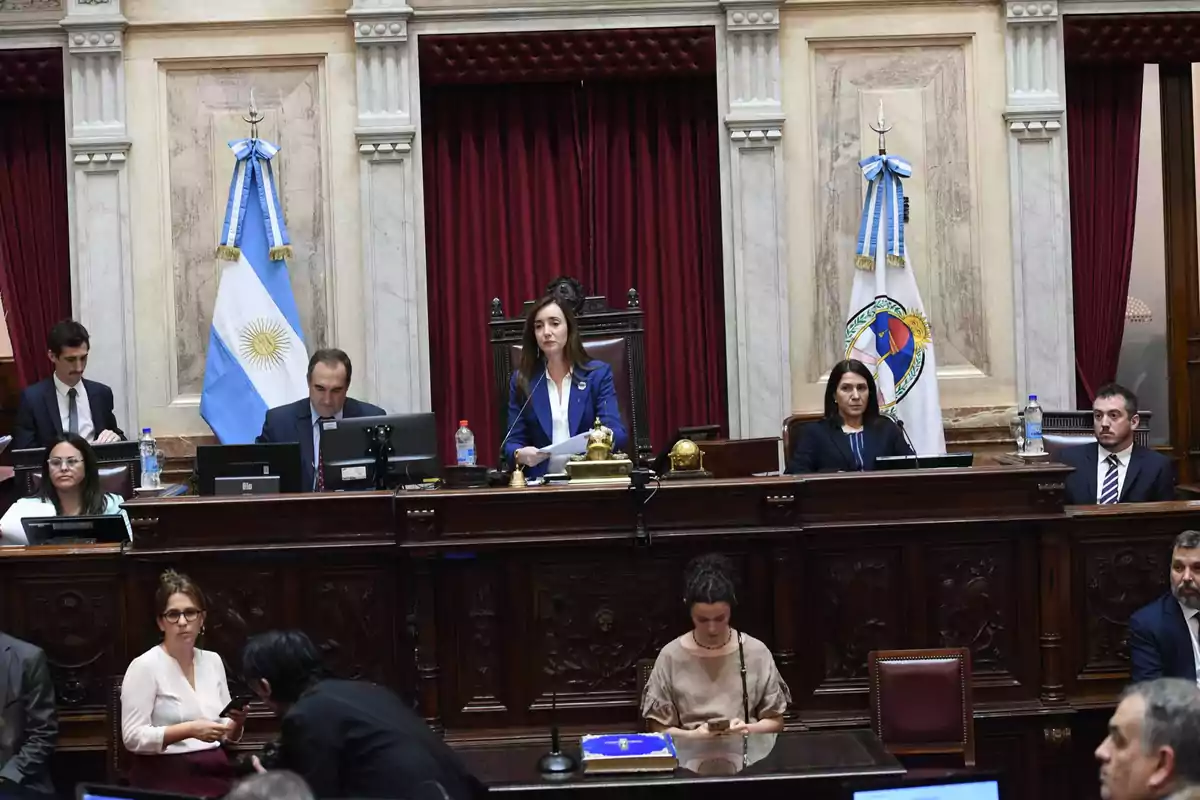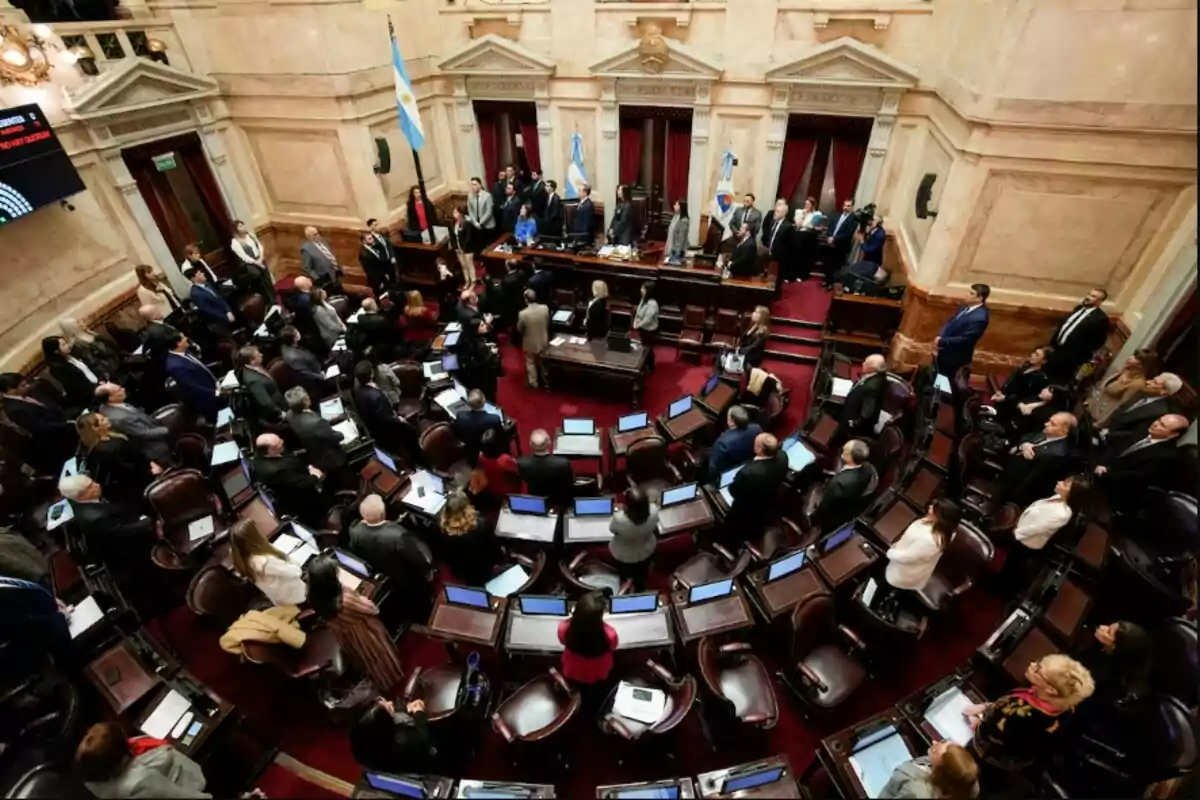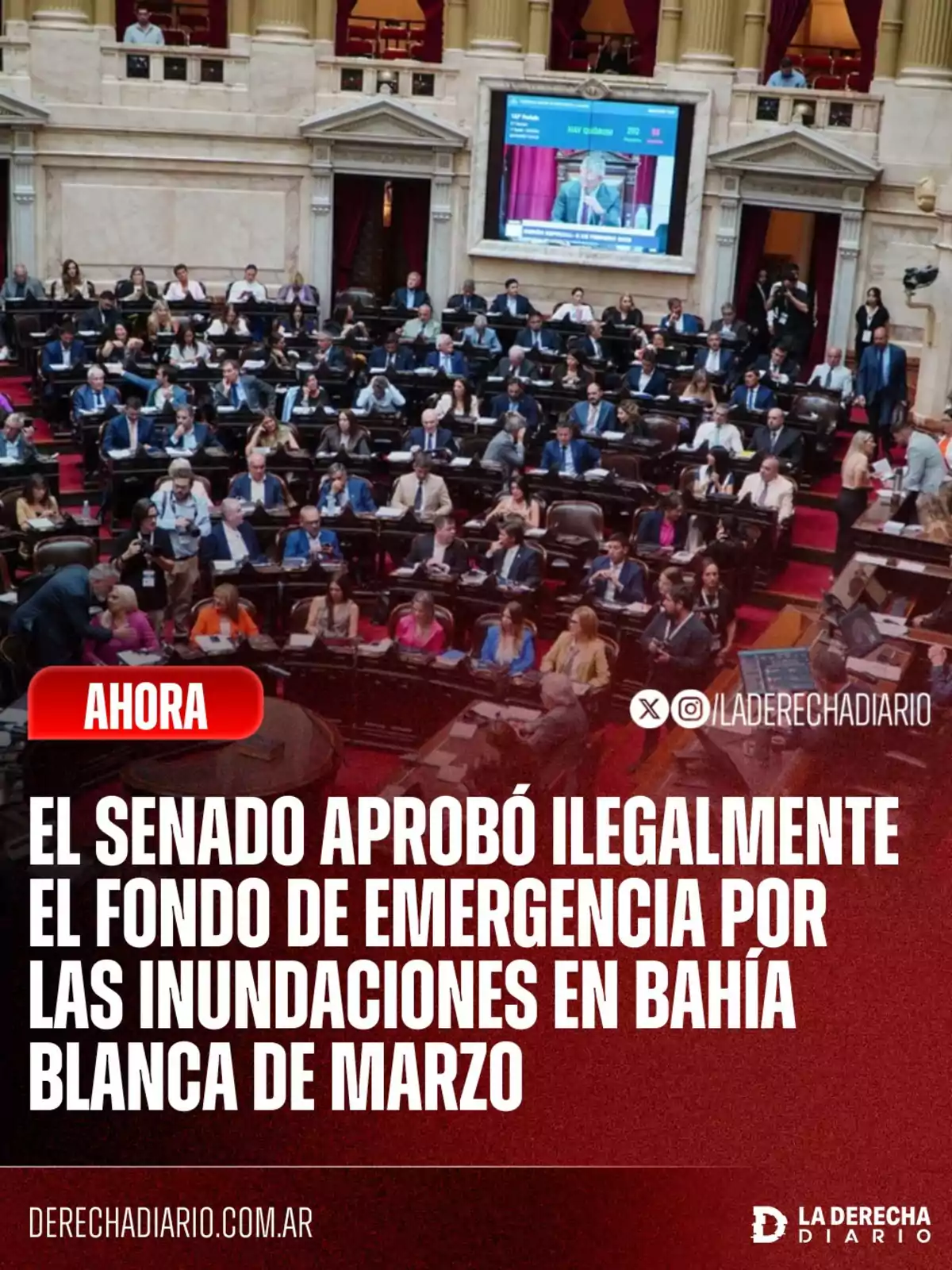
Kirchnerism violated Senate rules to impose illegal and deficit-ridden laws
The National Senate passed a package of laws that destroys the surplus achieved by the National Government
The Senate of the Nation was the scene of a scandalous maneuver that puts the Argentine institutional order in jeopardy. In a session that blatantly violated the internal regulations, the Kirchnerist opposition, with support from dialogue-oriented sectors, passed four laws with high fiscal impact without complying with the basic legal or parliamentary procedures.
Far from being a valid session, what occurred represents an attempt at illegitimate self-convocation, a figure that doesn't exist in the regulations of the Upper House. According to Article 19 of the Senate Regulations, a special session can only be held at the request of five or more senators or the Executive Branch, provided that the purpose is stated and, in the case of legislators, linked to a project that has been formally submitted through the Entry Desk. None of this was fulfilled.

There were also no valid committee reports, as required by Article 98, which establishes that committees must meet in the Senate and issue reports publicly, unless two-thirds of their members decide on the confidential nature of the meeting. Neither the meeting place nor the principle of publicity was respected.
In addition, no project can deviate from the regulations without a two-thirds majority, as required by Article 227, which makes it clear that the entire session lacked legal validity.

Despite the warnings, Vice President Victoria Villarruel did not adjourn the session, effectively facilitating the Kirchnerist maneuver. As figures such as Senator Ezequiel Atauche and Deputy Lilia Lemoine rightly pointed out, not only were procedural requirements omitted, but the reports also lacked the required publicity, rendering them null and void.
The approved package includes:
General increase in pensions.
Reactivation of the pension moratorium.
Declaration of emergency in disability.
Creation of a special fund for the floods in Bahía Blanca.
According to the Ministry of Economy, these measures imply a fiscal impact of up to 2.5 points of GDP, compromising the zero deficit that Javier Milei's Government managed to achieve after months of successful adjustments.
Meanwhile, from the Executive Branch, the reaction was immediate. Chief of Cabinet Guillermo Francos warned: "If the laws are sent, the Executive Branch will veto them and will also challenge their legitimacy in court."
More posts: